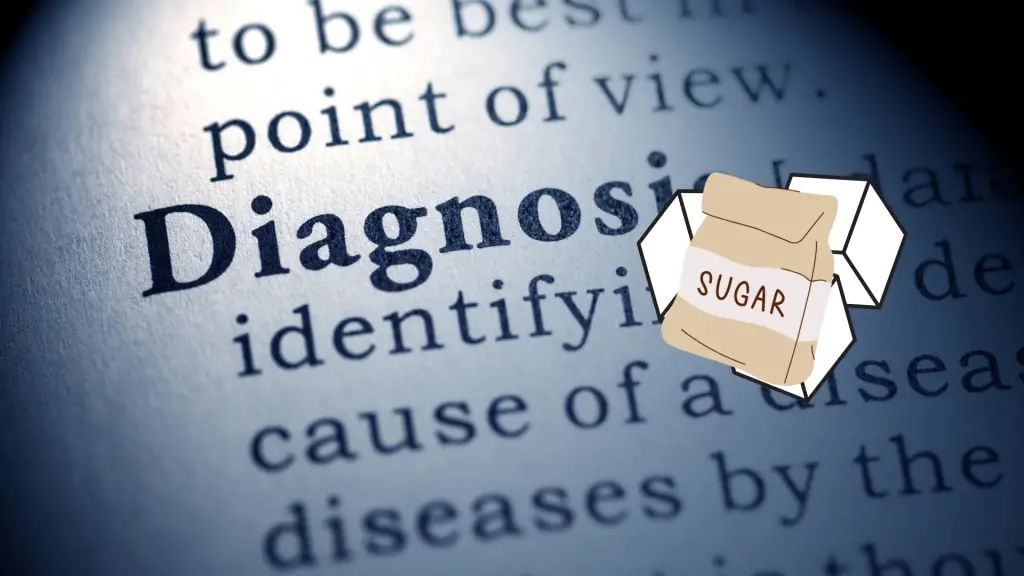Hello there! Are you feeling a bit down because of those pesky stomach cramps? Well, fear not! In this article, we’ll explore how sugar can be the culprit behind those uncomfortable abdominal pains. Gut cramps are sharp, localized abdominal pain caused by a variety of factors. Sugar, on the other hand, is a sweet-tasting carbohydrate that can be found in a variety of our favorite foods and beverages.
But did you know that stomach cramps and sugar have a connection? In fact, they can be caused by eating too much of it or having certain medical conditions that affect the intake.
This article will shed light on this connection and provide you with useful information about the causes, symptoms, diagnosis, treatment, prevention, and management of sugar-induced stomach cramps. Let’s get this party started!
Understanding Sugar
Now that we’ve established the link between gut cramps and sugar, let’s dig deeper into what it is, how our bodies process it, and what effects it has on our health.
Suggested Advice
Types of Sugar
Sugar is available in several forms, including glucose, fructose, sucrose, lactose, and maltose. Glucose is the most common type and the body’s primary energy source. Fruits, honey, and some vegetables contain fructose. Sucrose is another type that is commonly used in baking and cooking. Lactose is a found in milk, and maltose can be found in grains and cereals.
How the Body Processes Sugar
When we consume it, it is converted into glucose in the bloodstream. The hormone insulin then ensures that glucose reaches the cells of the body, where it is used for energy. Too much of it, on the other hand, can cause insulin resistance, which can lead to a variety of health problems, including diabetes.
Recommended Daily Sugar Intake
The American Heart Association recommends that women consume no more than 6 teaspoons (25 grams) of added sugars per day and men consume no more than 9 teaspoons (38 grams). Many people, however, consume far more than that, often in the form of processed and packaged foods.
Negative Effects of Sugar on Health
Excess consumption can cause weight gain, an increased risk of diabetes and heart disease, and inflammation. Sugar can also have a negative impact on the gut microbiome, causing digestive issues such as belly cramps.
It is critical that we limit our intake and choose whole, nutrient-dense foods over processed foods with high added sugar.
Causes

In this section, we look at the various causes of sugar gut cramps, which can be created by issues with sugar intake or underlying digestive disorders.
Fructose Malabsorption
Fructose malabsorption is a condition in which the small intestine fails to absorb fructose properly, causing digestive symptoms such as stomach cramps, bloating, and diarrhea. Fructose is abundant in sweetened beverages, fruits, and some vegetables, making it a common cause of sugar-induced gut cramps.
Lactose Intolerance
Lactose intolerance occurs when the body is unable to digest lactose, a sugar found in milk and dairy products. This can create digestive issues like gut pain, bloating, and diarrhea. Adults are more likely to suffer from lactose intolerance, which can range in severity.
Small Intestinal Bacterial Overgrowth (SIBO)
Small intestinal bacterial overgrowth (SIBO) occurs when the small intestine contains an excessive amount of bacteria, resulting in digestive symptoms such as stomach cramps, bloating, and diarrhea. SIBO can be caused by a variety of factors, including a high-sugar diet, which promotes the growth of harmful bacteria.
Irritable Bowel Syndrome (IBS)
Irritable bowel syndrome (IBS) is a chronic digestive disorder that creates stomach cramps, bloating, and changes in bowel habits. While the exact reason of IBS is unknown, eating a lot of sugar can aggravate symptoms.
Food Allergies or Sensitivities
Digestive symptoms such as stomach cramps, bloating, and diarrhea can be created by food allergies or sensitivities. Sugary foods or beverages may result in an allergic reaction or sensitivity in some people.
Other Possible Causes
Certain medications, viral or bacterial infections, and underlying conditions such as celiac disease or inflammatory bowel disease are all possible reasons of sugar-induced stomach pain.
It is critical to identify the underlying reason of stomach cramps order to address and treat the symptoms properly. In the following section, we will go over the symptoms.
Symptoms
In this section, we will go over the most common symptoms of sugar-induced gut pain. It is important to note that the severity and specific symptoms may vary depending on the underlying reason.
General Symptoms
Discomfort, pain, bloating, and changes in bowel habits are common symptoms of belly cramps. These symptoms can be mild to severe, and they may be accompanied by nausea, vomiting, and fever.
Symptoms Specific to Sugar-Related Cramps
- When stomach cramps are due to sugar-related issues, the following symptoms may occur:
- Bloating: An excess of sugar in the intestines can create an overgrowth of bacteria, resulting in bloating and discomfort.
- Diarrhea: Too much can be the reason of osmotic diarrhea, which occurs when the sugar draws water into the intestines, resulting in loose stools.
- Abdominal pain is a common symptom of fructose malabsorption, lactose intolerance, and SIBO, all of which can be caused by a high sugar intake.
- Nausea: Eating a lot of it can make you feel sick, especially if you have food allergies or sensitivities.
- Changes in bowel habits: Excessive sugar consumption can cause bowel changes such as constipation or diarrhea.
It should be noted that these symptoms can be caused by a variety of underlying conditions, and an accurate diagnosis is required to determine the reason of the stomach cramps. The following section will go over how to treat and manage the symptoms created by sugar.
Diagnosis and Treatment

Medical Examination
If you have stomach cramps caused by sugar, you should see a doctor to find out what is causing your symptoms. To diagnose conditions such as fructose malabsorption, lactose intolerance, or SIBO, your doctor may order blood tests, stool tests, or a breath test.
Elimination Diet
An elimination diet entails removing specific foods from your diet in order to identify potential causes of gut cramps. To determine which sugary foods and beverages are causing your symptoms, you may need to eliminate them from your diet and gradually reintroduce them.
Medications and Supplements
Your doctor may prescribe medications or supplements to help relieve your sugar-related stomach cramps, depending on the underlying cause. Lactase supplements, for example, may help with lactose intolerance, whereas antibiotics may be prescribed for SIBO.
Lifestyle Changes
In addition to medical treatment, lifestyle changes can aid in the management of sugar-induced gut ache. These could include:
- Sugar consumption should be limited by reducing or eliminating sugary foods and beverages from your diet and adhering to the recommended daily allowance.
- Eat a well-balanced diet that includes high-fiber foods, lean protein, and healthy fats to promote healthy digestion.
- Stay hydrated: drinking plenty of water can help you avoid constipation and promote regular bowel movements.
- Manage stress: Stress can aggravate digestive symptoms. As a result, stress-reduction techniques such as meditation or yoga may be beneficial.
- Exercise: Exercising on a regular basis can improve digestive health and promote regular bowel movements.
In conclusion, sugar-induced stomach ache can be caused by a number of underlying conditions, and proper diagnosis is required for effective treatment. You can effectively treat and reduce your symptoms by changing your lifestyle, limiting your sugar consumption, and working with a doctor.
Prevention and Management
This section will go over the various methods for preventing and treating stomach cramps caused by sugar.
Diet Changes
Changing your diet is one of the most effective ways to prevent sugar-related stomach cramps. This may imply cutting back on or eliminating sugary foods and beverages from your diet, as well as limiting your intake of processed and packaged foods. Consume a well-balanced diet rich in high-fiber foods, lean protein, and healthy fats to promote digestive health and lower the risk of sugar-related ache.
Exercise and Physical Activity
Regular physical activity and exercise can improve digestive health, reduce stress, and promote regular bowel movements, all of which can help prevent stomach ache caused by sugar. Most days of the week, move around for at least 30 minutes and try to incorporate a variety of activities such as walking, jogging, biking, or swimming.
Stress Reduction Techniques
Stress can exacerbate digestive symptoms. As a result, incorporating stress-reduction techniques into your daily routine can help prevent and manage sugar-related stomach cramps. Deep breathing, meditation, yoga, and massage are all techniques that can help reduce stress and promote relaxation.
Supplements
Certain supplements may also aid in the prevention and treatment of sugar-related stomach cramps. Lactase supplements, for example, can help with lactose intolerance, whereas probiotics can help maintain a healthy gut microbiome and reduce the risk of SIBO developing. Before beginning any new supplements, consult with your doctor.
In conclusion, preventing and treating sugar-related stomach ache necessitates lifestyle changes such as dietary changes, regular exercise, stress reduction, and the use of specific dietary supplements. You can effectively prevent sugar-related cramps and promote digestive health by incorporating these measures into your daily routine and working with your doctor.
Final Words
It is critical to remember that everyone’s body is unique, and what works for one person may not work for another. If you have stomach ache caused by sugar or other digestive symptoms, see a doctor for an accurate diagnosis and a personalized treatment plan.
You can improve your digestive health and overall well-being by proactively addressing stomach cramps caused by sugar. You can effectively prevent and manage sugar-related cramps and promote a healthy digestive system with the right combination of lifestyle changes and professional medical advice.

